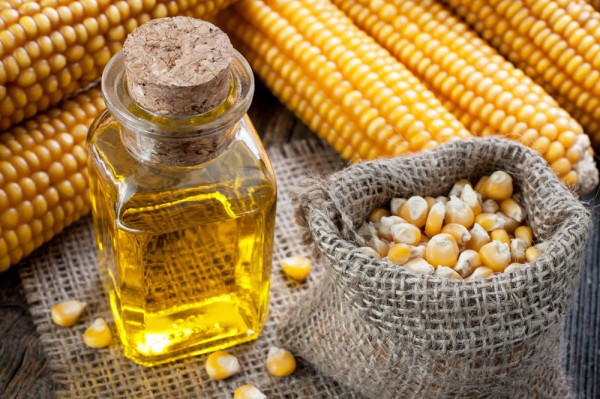Could Corn Oil Be The Key To Heart Health?

If you are trying to eat healthy or lose weight, you probably think that you shouldn’t have oil in your meal plan. After all, oil is full of fat, and fat is bad, right? Well, it turns out that not all oil is bad for you, and you actually need good oil in your heart healthy eating plan. Research has shown that corn oil may actually lower cholesterol levels even more than olive oil, the oil popularly known for being “healthy.”
Corn oil vs. extra virgin olive oil
A group of 54 men and women were fed the same basic meal plan to keep their weight steady throughout the study. Some study members had four tablespoons of corn oil added to their food each day, while others received four tablespoons of extra virgin olive oil in their food each day. The study members were checked for:
- Total cholesterol
- LDL cholesterol (the “bad” cholesterol, that is known for clogging arteries)
- HDL cholesterol(the “good” cholesterol)
- Triglycerides
- Ratio of total cholesterol to HDL cholesterol
The study found that the corn oil lowered LDL (bad) cholesterol three times more than extra virgin olive oil. Also, the corn oil lowered total cholesterol almost five times more than extra virgin olive oil. This was a very small study, with surprising results. Much more research is needed to confirm these findings. So, you don’t need to replace all your olive oil with corn oil. In fact, there is a great deal of research on the health benefits of olive oil, so it still has a place in your healthy eating meal plan.
So, what does this mean for my heart healthy diet?
 The researchers who ran this study suggest that corn oil may have greater effect in lowering cholesterol than extra virgin olive oil. This may be due to corn’s natural cholesterol-blocking abilities, which come from the plant sterols that corn naturally contains.
The researchers who ran this study suggest that corn oil may have greater effect in lowering cholesterol than extra virgin olive oil. This may be due to corn’s natural cholesterol-blocking abilities, which come from the plant sterols that corn naturally contains.
What are plant sterols?
Corn oil contains a combination of healthy fatty acids and plant sterols. Corn oil has about four times more plant sterols than olive oil does, and nearly twice the plant sterols of canola oil. Plant sterols are plant-based substances that are found in fruits, veggies, nuts, seeds, cereals, beans and vegetable oils.
Under a microscope, plant sterols look a lot like cholesterol. This helps plant sterols get in the way of real cholesterol to prevent it from entering your blood. When real cholesterol is blocked, it ends up being removed by your body instead of clogging your arteries.
How can I add more plant sterols in my diet?
- Eat more veggies and veggie-based products. Veggies such as Brussels sprouts and vegetable-based oils contain healthy amounts of plant sterols.
- Eat more wheat germ and wheat bran. Add wheat germ to muffin mix and other recipes, or eat wheat bran cereal products for breakfast.
- Eat more nuts. Nuts contain healthy fats and plant sterols, which can help lower fat in the blood and maintain a healthy diet. Walnuts, almonds, hazelnuts and pistachios are among the healthiest. But, be sure to limit servings to one-fourth cup of nuts at snack time since you can have too much of a good thing!
- Take a supplement. If you feel like you are not getting enough plant sterols from your food, ask your doctor if a plant sterol supplement could be right for you.
The take home message
Do not be afraid of fats in your diet as long as they are the good fats found in nuts, seeds and plant-based oils. Try to include a variety of the foods from the list above in your healthy eating plan. These fats are good for your heart and can be the key to staying on track with your healthy lifestyle!
Reviewed by Robert Ehrman, MD

